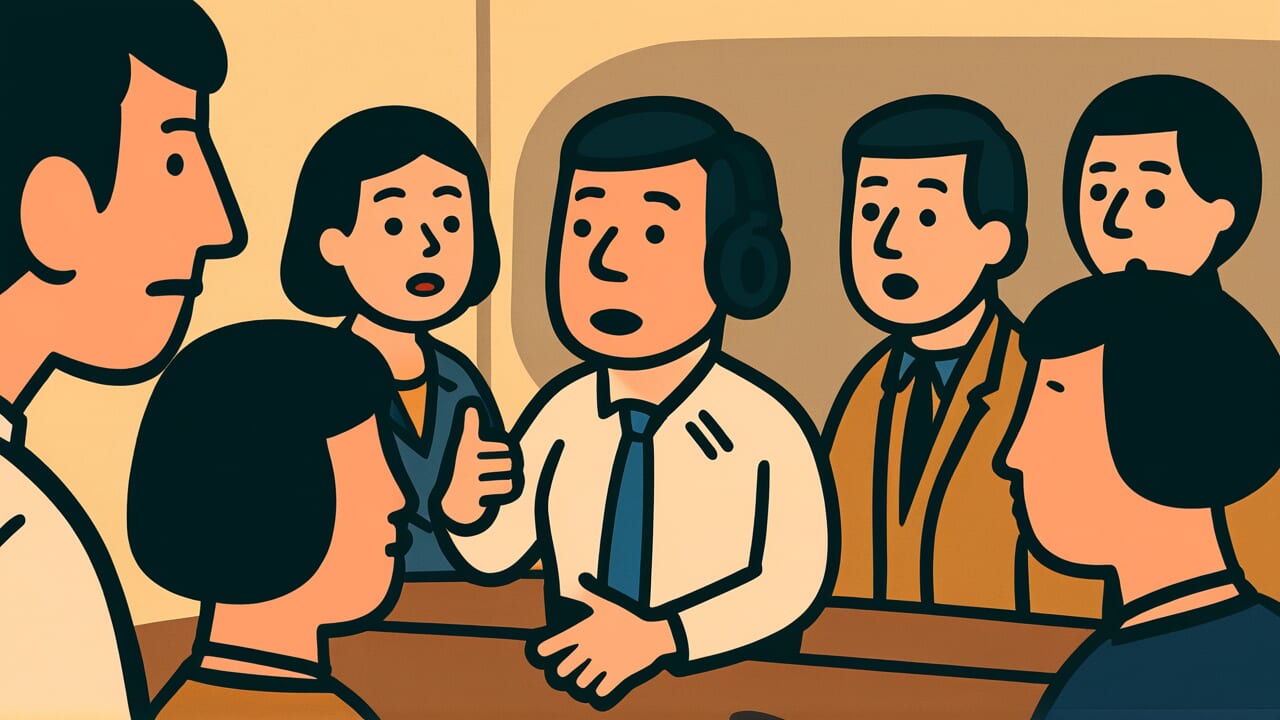How to Read “Wranglers never want words”
Wranglers never want words
RANG-lers NEV-er want words
The word “wranglers” might sound unfamiliar. It means people who argue a lot.
Meaning of “Wranglers never want words”
Simply put, this proverb means argumentative people always find plenty to say when fighting.
The literal words paint a clear picture. Wranglers are people who love to argue and fight with words. The saying tells us these people never run out of things to say. They always have another point to make or another complaint to raise.
This proverb applies to many situations today. Think about people who argue on social media for hours. They never seem to run out of responses or new angles to attack. In families, some relatives always find something to complain about at gatherings. At work, certain coworkers can turn any meeting into a debate.
What makes this wisdom interesting is how it reveals human nature. People who love conflict seem to have endless energy for it. They can take any topic and find reasons to disagree. Meanwhile, people who prefer peace often struggle to find words during arguments. The proverb shows us that arguing might be more about personality than actual issues.
Origin and Etymology
The exact origin of this proverb is unknown, though it appears in collections of English sayings from several centuries ago. The word “wrangler” comes from an old term meaning to dispute or quarrel angrily. Early records show this type of saying was common in rural communities.
During earlier periods of history, oral tradition was crucial for sharing wisdom. Communities needed ways to describe difficult personalities and social problems. Sayings like this helped people recognize and discuss troublesome behavior patterns. The alliteration in “wranglers” and “want” and “words” made it easy to remember and repeat.
These types of observations about human nature spread through everyday conversation. People shared them in markets, taverns, and family gatherings. Over time, the most accurate and memorable sayings survived while others were forgotten. This particular saying captured something universal about argumentative people, which helped it endure across generations and eventually appear in written collections.
Interesting Facts
The word “wrangler” originally came from a Germanic root meaning “to twist” or “to struggle.” This connects to the idea of twisting words during arguments.
The proverb uses alliteration with three “w” sounds, which was a common memory device in oral traditions before widespread literacy.
Usage Examples
- Manager to HR representative: “Don’t bother preparing talking points for the meeting with those two departments – wranglers never want words.”
- Teacher to principal: “The parents are already fired up about the policy change, so keep the explanation short – wranglers never want words.”
Universal Wisdom
This proverb reveals a fundamental truth about human psychology and the nature of conflict. Some people seem naturally drawn to disagreement, not because they care deeply about specific issues, but because arguing itself serves deeper emotional needs. The endless supply of words reflects an endless appetite for the stimulation that conflict provides.
From an evolutionary perspective, this pattern makes sense. Humans who could argue effectively often secured better resources and social positions. The ability to find fault and press advantages through verbal skill became a survival strategy. However, what once helped individuals compete now often disrupts group harmony. The same mental agility that generates endless arguments can become destructive in cooperative settings.
The proverb also illuminates how conflict perpetuates itself. Argumentative people rarely run out of material because they approach every situation looking for problems to highlight. Their minds naturally scan for weaknesses, contradictions, and opportunities to disagree. This creates a self-reinforcing cycle where seeking conflict guarantees finding it. Meanwhile, their constant practice makes them increasingly skilled at verbal combat, while others avoid engaging altogether. The result is that the most argumentative voices often dominate discussions, not because their ideas are better, but because they have more stamina for the fight.
When AI Hears This
Arguments work like engines that create their own fuel. Each word spoken doesn’t use up the conversation. Instead, it makes more words appear. People who love to argue have found a magic trick. They discovered that fighting with words makes even more words.
This happens because humans treat arguments like word factories. The goal stops being about solving problems. Instead, the goal becomes making more conversation. People don’t realize they’re doing this. Their brains automatically turn each disagreement into raw material for the next disagreement.
What fascinates me is how perfectly this system works. Humans accidentally built the most efficient conversation machine possible. They never run out of things to say because saying things creates more things to say. It’s like a river that flows uphill by flowing downhill. The arguing never stops because the arguing feeds itself.
Lessons for Today
Understanding this wisdom helps us navigate relationships and conflicts more skillfully. When dealing with naturally argumentative people, recognizing their pattern can prevent us from getting drawn into endless disputes. Their abundance of words often reflects their personality more than the importance of the issue at hand.
In relationships, this insight proves valuable for choosing our battles wisely. Some people will always find something to argue about, regardless of how much we try to accommodate them. Learning to distinguish between genuine concerns and habitual arguing saves emotional energy. It also helps us avoid the trap of thinking we can resolve conflicts simply by finding the right words or perfect explanations.
For communities and groups, this wisdom suggests the importance of managing discussion dynamics. Allowing the most argumentative voices to dominate every conversation often silences more thoughtful perspectives. Creating structures that encourage diverse participation, rather than rewarding those who argue longest, leads to better outcomes. The goal becomes fostering productive dialogue rather than endless debate. While some conflict can generate useful ideas, recognizing when argument becomes its own purpose helps groups move forward more effectively.



Comments